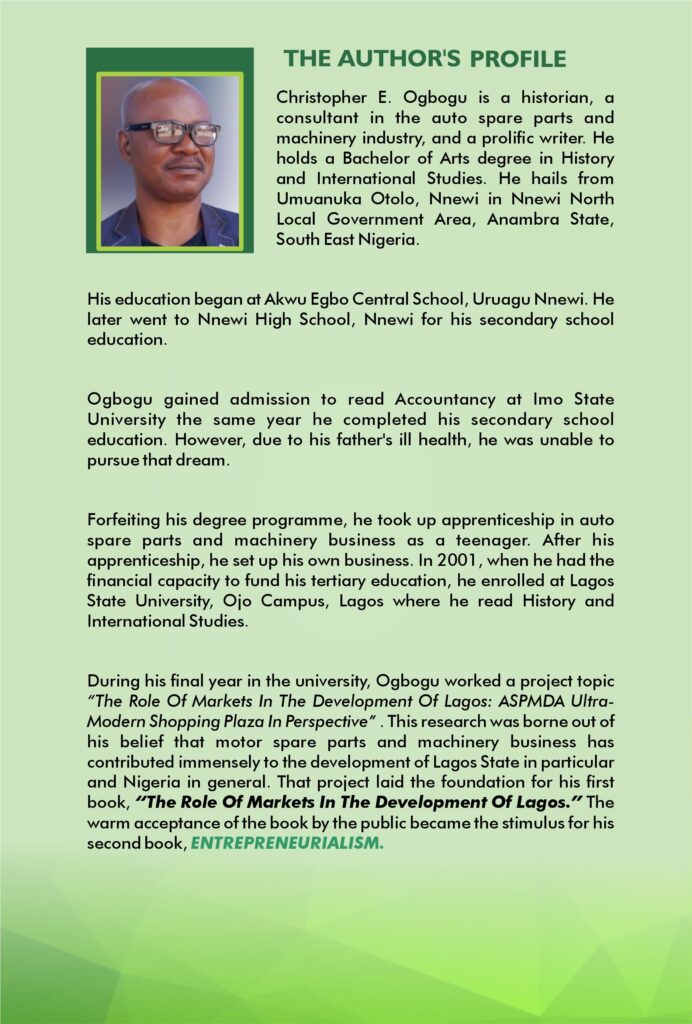
Christopher E. Ogbogu is a historian, a consultant in the auto spare parts and machinery industry, and a prolific writer. He holds a Bachelor of Arts degree in History and International Studies and hails from Umuanuka Otolo, Nnewi in Nnewi North Local Government Area, Anambra State, South East Nigeria.
His educational journey began at Akwu Egbo Central School, Uruagu Nnewi, followed by Nnewi High School. Though initially admitted to read Accountancy at Imo State University, circumstances led him to pursue apprenticeship in the auto spare parts and machinery business as a teenager, giving him firsthand experience of the very system he would later write about.
In 2001, Ogbogu enrolled at Lagos State University, Ojo Campus, where he read History and International Studies. His final year project, “The Role Of Markets In The Development Of Lagos: ASPMDA Ultra-Modern Shopping Plaza In Perspective,” became the foundation for his first book and ultimately led to the creation of Entrepreneurialism.
His unique combination of academic training and practical business experience provides him with invaluable insights into the Igbo apprenticeship system and its impact on Nigeria’s economy.
About the Book
About the Book
There are many speculations on the economic survival and growth of the Igbo after the ugly Nigerian-Biafran civil war (1967-1970) during which almost all the wealth the people had toiled for prior to the war was wiped out. Many have discussed how the Igbo nation was able to survive economically with the egregious £20 policy of the then Federal Military Government to Igbo entrepreneurs to live on no matter the amount of money they had in their respective bank accounts before the war.
Consequently, many authors have suggested how wealth became evenly distributed among the Igbo more than any other ethnic nationality globally. This is the essence of Entrepreneurialism and the Igbo apprenticeship system. There is no doubt that the Igbo are the engine of Nigeria’s economy.
Entrepreneurialism is a book that explores the origin, growth and importance of the Igbo apprenticeship system in relation to the economic development of Lagos State and Nigeria generally. The use of ASPMDA Ultra-Modern Shopping Plaza, Lagos Int’l Trade Fair Complex, an informal sector of the economy as a model will help in understanding how the system has played a vital role in making the Igbo the most dominant group in commerce in Nigeria since the civil war.
